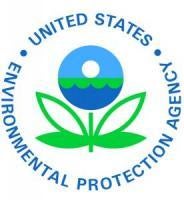Agency also Proposes to Add an Additional Nine Sites
Today the U.S. Environmental Protection Agency (EPA) is adding nine hazardous waste sites that pose risks to people’s health and the environment to the National Priorities List (NPL) of Superfund sites. EPA is also proposing to add another nine sites to the list. Superfund is the federal program that investigates and cleans up the most complex, uncontrolled or abandoned hazardous waste sites in the country to protect people’s health and the environment.
“Sites that pose serious risks to human health and the environment and warrant Superfund attention continue to be identified by EPA and our state partners,” said Mathy Stanislaus, assistant administrator for EPA’s Office of Solid Waste and Emergency Response. “EPA continues to act on its statutory obligation to update the NPL annually and clean up hazardous sites to protect human health with the goal of returning them to communities for productive use. Superfund cleanups improve local economies, protect people’s health and improve overall quality of life in affected communities.”
A site’s listing neither imposes a financial obligation on EPA nor assigns liability to any party. Updates to the NPL do, however, provide policymakers and the public with a list of high priority sites, serving to identify the size and nature of the nation’s cleanup challenges.
The Superfund program has provided important benefits for people and the environment since Congress established the program in 1980.Those benefits are both direct and indirect, and include reduction of threats to human health and ecological systems in the vicinity of Superfund sites, improvement of the economic conditions and quality of life in communities affected by hazardous waste sites, prevention of future releases of hazardous substances, and advances in science and technology.
By eliminating or reducing real and perceived health risks and environmental contamination associated with hazardous waste sites, Superfund actions frequently convert contaminated land into productive local resources and increase local property values. A recent study conducted by researchers at Duke and Pittsburgh Universities concluded that, while a site’s proposal to the NPL reduces property values slightly, making a site final on the NPL begins to increase property values surrounding Superfund sites. Furthermore, the study found that, once a site has all cleanup remedies in place, surrounding properties have a significant increase in property values as compared to pre-NPL proposal values.
Since 1983, EPA has listed 1,685 sites on the NPL. At 1,145 or 68 percent of NPL sites, all cleanup remedies are in place. Approximately 610 or 36 percent of NPL sites have all necessary long-term protections in place, which means EPA considers the sites protective for redevelopment or reuse.
With all NPL sites, EPA first works to identify companies or people responsible for the contamination at a site, and requires them to conduct or pay for the cleanup. For the newly listed sites without viable potentially responsible parties, EPA will investigate the full extent of the contamination before starting significant cleanup at the site. Therefore, it may be several years before significant EPA clean up funding is required for these sites.
The following nine sites have been added to the NPL:
• Macon Naval Ordnance Plant (former ordnance manufacturer) in Macon, Ga.;
• Pike and Mulberry Streets PCE Plume (former dry cleaner) in Martinsville, Ind.;
• Former United Zinc & Associated Smelters (former zinc smelter) in Iola, Kan.;
• Creese & Cook Tannery (Former) (former tannery and finishing facility) in Danvers, Mass.;
• Walton & Lonsbury Inc. (former chrome plating operation) in Attelboro, Mass.;
• Matlack, Inc. (former chemical transportation business) in Woolwich Township, N.J.;
• Riverside Industrial Park (former paint manufacturer) in Newark, N.J.;
• Clinch River Corporation (former pulp and paper mill) in Harriman, Tenn.; and
• 700 South 1600 East PCE Plume (ground water plume) in Salt Lake City, Utah.
The following nine sites have been proposed for addition to the NPL:
• Beck’s Lake (former automotive and hazardous waste dump) in South Bend, Ind.;
• Garden City Ground Water Plume (ground water plume) in Garden City, Ind.;
• Keystone Corridor Ground Water Contamination (ground water plume) in Indianapolis, Ind;
• Smurfit-Stone Mill (former pulp and paper mill) in Missoula, Mont.;
• Cristex Drum (former fabric mill) in Oxford, N.C.;
• Hemphill Road TCE (former chemical drum recycling) in Gastonia, N.C.;
• Collins & Aikman Plant (Former) (former automotive rubber manufacturer) in Farmington, N.H.;
• Wilcox Oil Company (former oil refinery) in Bristow, Okla.; and
• Makah Reservation Warmhouse Beach Dump (municipal and hazardous waste dump) in Neah Bay, Wash.
EPA is also proposing to change the name of the B.F. Goodrich site in Rialto, Cal., which EPA added to the NPL on September 23, 2009 (74 FR 48412). A settling work party has requested that EPA propose changing the site’s name to Locust Avenue; the proposed change is consistent with the terms of a consent decree lodged with the court and informs the public of the site’s geographic location.



 />i
/>i
